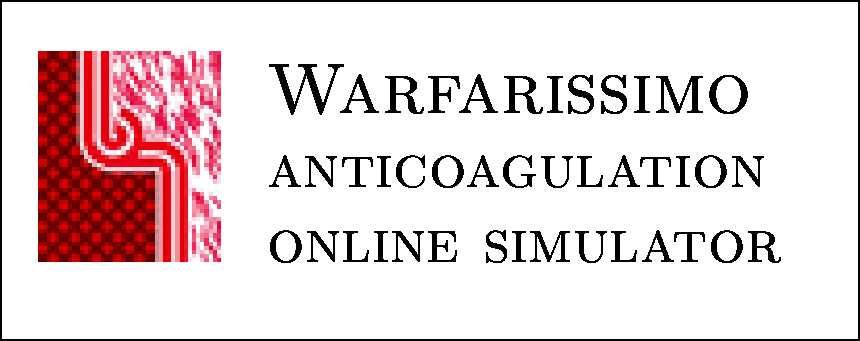
INR definition
INR (International Normalised Ratio) is the ratio between the coagulation time of a sample of blood and the normal coagulation time, when coagulation takes place in certain standardised conditions.
The purpose of anticoagulant treatment is to prolong coagulation. Thus anticoagulants that affect 'the extrinsic pathway' (one of the two biochemical chain reactions that lead to blood coagulation) such as warfarin or acenocoumarol, will lead to a higher INR. The desired target interval for the INR is between 2 and 3 in most cases (atrial fibrillation, myocardial infarction, thrombophlebitis) and can be higher (3.5-4.5 in patients with metalic heart valve prostheses for example).
Accuracy of INR determination is generally no better than 10%. Thus, if we measure an INR of 3 it is most likely between 2.7 and 3.3 if we use a good and recently calibrated laboratory.
*We will only use your e-mail address to answer your message.
(c) 2005 A.D. Corlan







